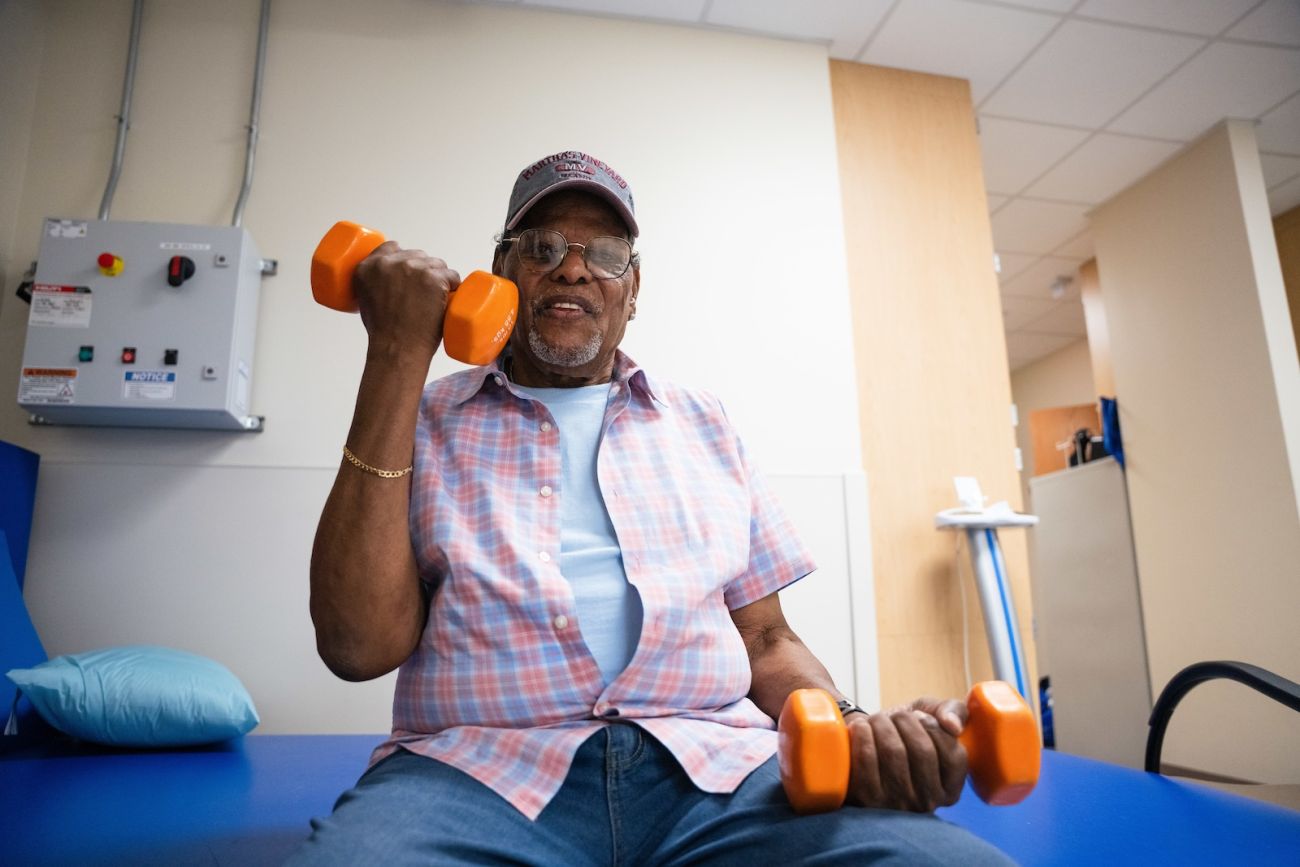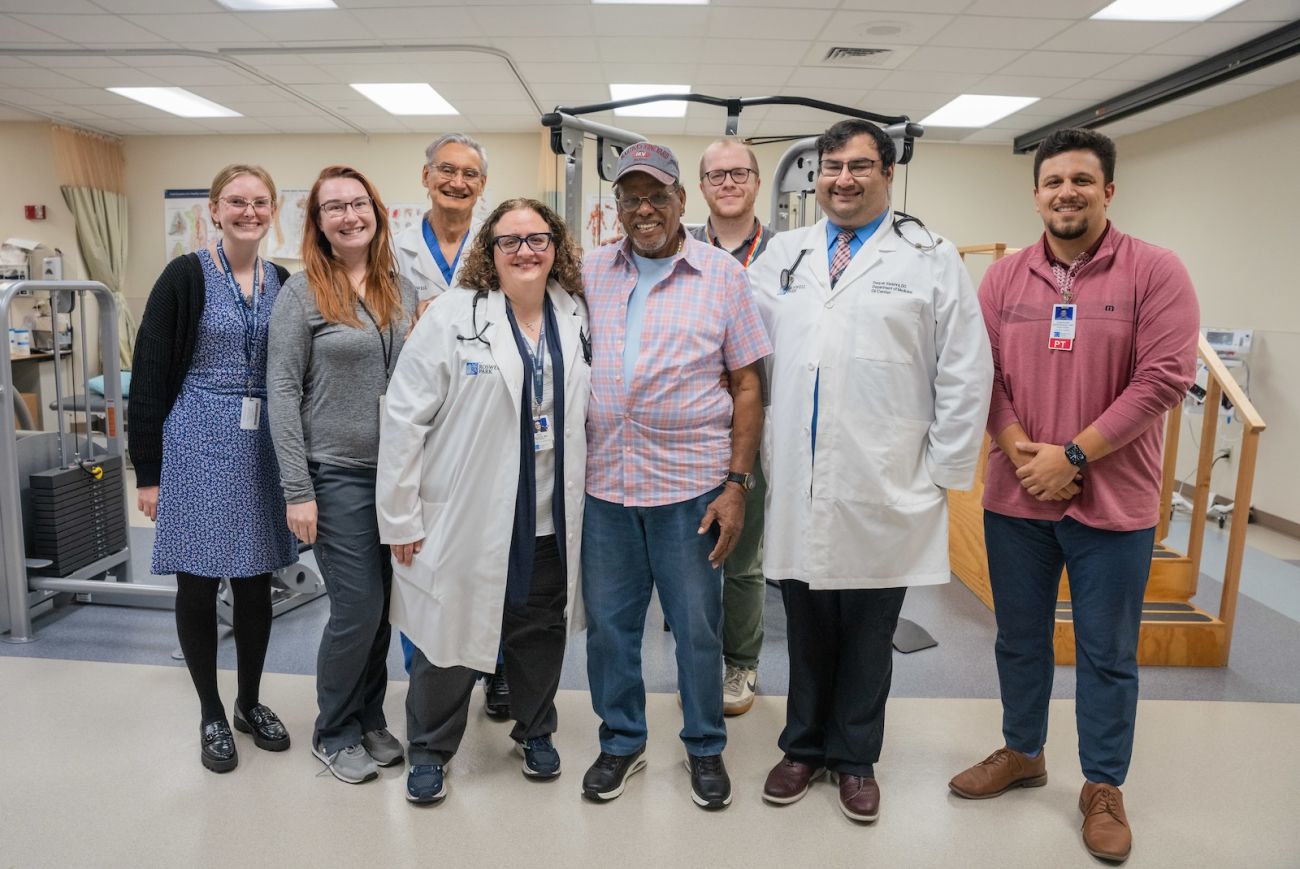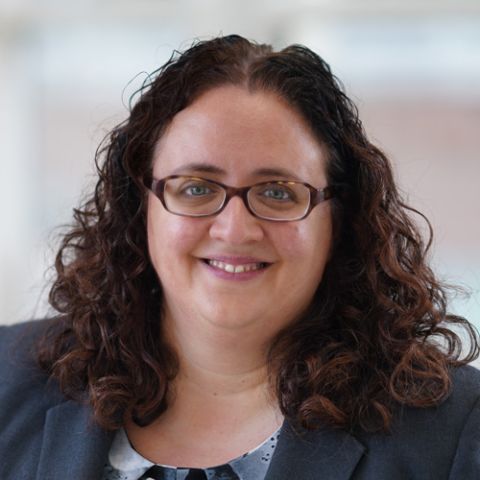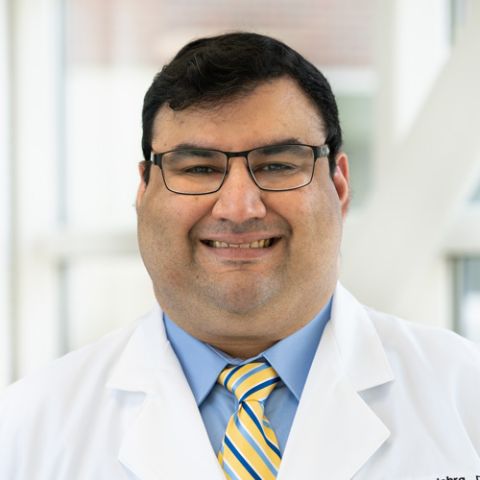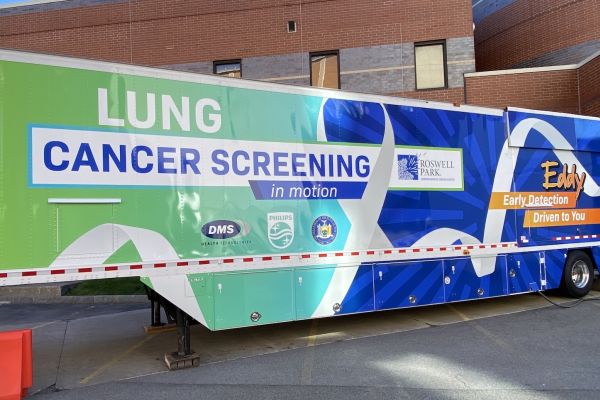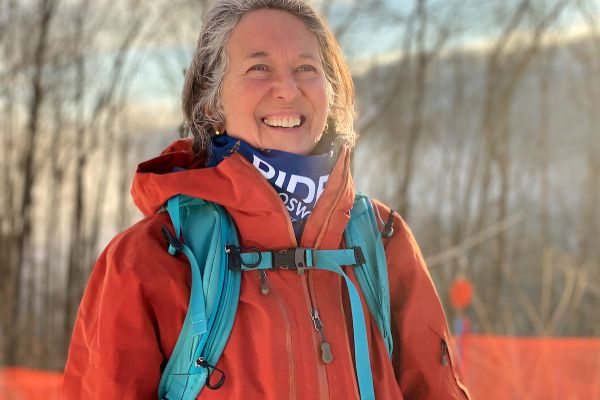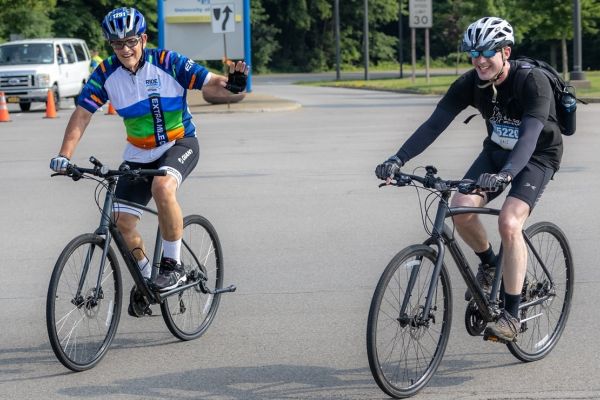Nathaniel Fountain knew something was wrong when he couldn’t stop hiccupping for months.
“He had them for quite a while, from around the third week of July, and we knew it wasn’t normal,” says his wife, Gwen Fountain.
In a roundabout way, those hiccups saved his life, she says.
After trying some home remedies, the Fountains went to the hospital to have Nathaniel examined. When doctors suggested a biopsy of something they found in his lung, Nathaniel declined, saying he’d rather go under the knife one time, so that if something concerning was found, it could be removed right away.
That’s what brought him to Roswell Park Comprehensive Cancer Center in fall 2023, where a cancerous tumor on the lower lobe of his left lung was confirmed by thoracic surgeon Todd Demmy, MD.
Nathaniel didn’t have any other symptoms of lung cancer, not even shortness of breath when climbing stairs. But the tumor was in a spot that it prevented his diaphragm from fully extending normally when breathing, triggering the hiccups.
“Dr. Demmy gave me an X-ray and when I came out of it, they showed me what my problem was. It was easy to see, it was lit up like a candle,” he says of his tumor. “He told me what he could do and I agreed. Get that out of there, it’s not supposed to be there.”
Nathaniel’s stage 2 tumor was “hot,” meaning it had active and growing cancer cells, but Dr. Demmy was able to fully remove it and half of the lung around it with a minimally invasive surgery that involved a one-and-a-half-inch incision between his ribs. This meant Nathanial could go home after just three days without needing supplemental oxygen, despite being an older patient.
After this, he met with Bailey Gleason Fitzgerald, MD, a medical oncologist who specializes in lung cancer. Together they decided that given his limited disease, chemotherapy in his case would not provide benefit.
From lung cancer to pancreatic cancer
Unfortunately, Nathaniel wasn’t fully out of woods just yet. He developed an abscess on his liver and, in the course of treating that, it was discovered that he had a cancerous tumor on his pancreas.
From there, Nathaniel met with Benjamin Calvo, MD, FACS, a surgical oncologist specializing in gastrointestinal tract cancers. Here, too, Nathaniel was fortunate: The cancer was caught early and required surgery to remove the tumor, but it had not spread.
However, there was a complication: Due to his illnesses and deconditioning, Nathaniel had lost a considerable amount of weight and strength, and at 83 years old, he was not well enough for a complex operation to remove part of his pancreas.
At that point, he was referred to Desi Carozza, MD, FAAHPM, a board-certified physician in both palliative care and geriatrics in Roswell Park’s Department of Supportive and Palliative Care.
Why choose Roswell Park?
Comprehensive cancer care means an entire team is taking care of you — mind, body and spirit — throughout your treatment into survivorship, all in one location.
“I don’t treat numbers, I treat people”
Nathaniel was a perfect candidate for a new pilot program Dr. Carozza launched earlier in 2024, focusing on the specialized needs of older adults with cancer who are candidates for gastrointestinal surgery. This program offers focused evaluations for patients aged 65 and over promoting the use of physical therapy, nutrition assistance and complex decision-making support to optimize their cancer care journey.
“Cancer is very prevalent in older adults and we have had extraordinary success in this pilot identifying ways that we can support the patient’s individual needs,” Dr. Carozza says. “Aging is a process and we need to ‘stage the aging’ the same way we stage the cancer to provide the best care for the patient as an individual. Age alone does not tell me anything about the person. Knowing how they function each day, their unique medical history and what matters to them now and in the future helps us make the right decision together. I don’t treat numbers, I treat people.”
An estimated 70% of cancer patients are aged 65 and older, Dr. Carozza says, with half of all Roswell Park patients falling into that age range. This pilot project, funded through a Roswell Park Alliance Foundation Quality of Life Grant, aims to help more patients get the multidisciplinary care they need to improve outcomes from diagnosis to survivorship.
As a member of the National Comprehensive Cancer Network’s panel for older adult oncology, Dr. Carozza is especially qualified to devise and implement the program, something she hopes to make uniform across the hospital and in other NCCN-affiliated facilities.
“Roswell Park is revolutionizing the way we deliver these services to older adults by getting up-front assessments and really meeting people at the door, allowing them to get the support they need to make their cancer journey successful,” she says.
“He wanted to try”
By talking with Nathaniel and Gwen about his health and the support services Dr. Carozza’s team could provide, his determination to get better and fight his second cancer was apparent. He didn’t want to consider hospice care, he wanted to work to improve his health. “His goals made our next steps clear. We focused on maximizing function and mobility, nutrition support and streamlining medications, all through the lens of the patient dictating what matters most to them,” Dr. Carozza says.
Two months later, his hard work with physical therapist Jonathon DiPasquale and trained dieticians paid off. He was strong enough for his second cancer surgery in less than a year. It, too, was a success.
Given that this was his second cancer diagnosis in a few months, Nathaniel next met with Deepak Vadehra, MD, a medical oncologist on the GI cancer team.
“Nate wasn’t a great candidate for chemotherapy. He had lost some weight and strength because he was having some post-operative issues. I had a very honest discussion at his first visit and said ‘Nate, you have to understand, if you want to do chemo, we can do chemo. Can I tell you this is going to 100% prevent your cancer from returning? No,’” Dr. Vadehra recalls. “He wanted to try.”
They went forward with a few rounds of treatment before Nathaniel’s hemoglobin levels dipped too low to safely proceed. In addition to pancreatic and lung cancer, he also was diagnosed with smoldering myeloma, a condition which will eventually develop into multiple myeloma, another type of cancer.
“With smoldering myeloma, your bone marrow is not normal. He never had high hemoglobin to begin with,” Dr. Vadehra says. “But we started chemo and his blood counts were holding, then all of sudden they started dipping to where it wasn’t safe to continue chemotherapy. In typical circumstances, we would give patients a blood transfusion and keep pushing, but Nate has O-negative blood, and there was a critical shortage of that blood type at the time.”
Nathaniel went back under Dr. Carozza’s care at that time to help him maintain strength; in the meantime, blood tests and scans found no detectable cancer. “I think that he truly is an enigma,” Dr. Vadehra says.
Today, Nathaniel is doing well. His scans continue to come back clear. He continues to come back to Roswell Park regularly for physical therapy and other appointments and remains grateful for his doctors.
“I feel like a million dollars,” he says. “I’m so happy with the whole staff here. I never had the kind of service I got here at Roswell Park."
Editor’s Note: Cancer patient outcomes and experiences may vary, even for those with the same type of cancer. An individual patient’s story should not be used as a prediction of how another patient will respond to treatment. Roswell Park is transparent about the survival rates of our patients as compared to national standards, and provides this information, when available, within the cancer type sections of this website.
